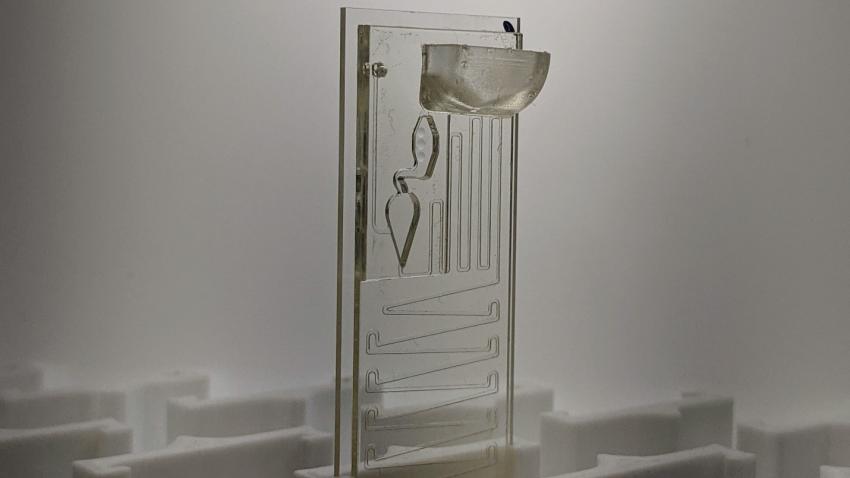You are here
Test Distinguishes SARS-CoV-2 from Other Coronaviruses with 100% Accuracy
Duke University biomedical engineers have demonstrated a tablet-sized platform that could also predict COVID-19 case severity and immunity against variants

Biomedical engineers at Duke University have demonstrated a tablet-sized device that can reliably detect multiple COVID-19 antibodies and biomarkers simultaneously.
Initial results show the test can distinguish between antibodies produced in response to SARS-CoV-2 and four other coronaviruses with 100% accuracy.
The researchers are now working to see if the easy-to-use, energy-independent, point-of-care device can be used to predict the severity of a COVID-19 infection or a person’s immunity against variants of the virus.
Having also recently shown the same “D4 assay” platform can detect Ebola infections a day earlier than the gold standard polymerase chain reaction (PCR) test, the researchers say the results show how flexible the technology can be to adapt to other current or future diseases.
The results appeared online, June 25, in Science Advances.
 “The D4 assay took six years to develop, but when the WHO declared the outbreak a pandemic, we began working to compress all of that work into a few months so we could explore how the test could be used as a public health tool,” said Ashutosh Chilkoti, the Alan L. Kaganov Distinguished Professor and Chair of Biomedical Engineering at Duke. “Our test is designed to be both adaptable and truly point-of-care, and this is clearly a scenario when a portable, fast and cost-effective diagnostic would be most useful.”
“The D4 assay took six years to develop, but when the WHO declared the outbreak a pandemic, we began working to compress all of that work into a few months so we could explore how the test could be used as a public health tool,” said Ashutosh Chilkoti, the Alan L. Kaganov Distinguished Professor and Chair of Biomedical Engineering at Duke. “Our test is designed to be both adaptable and truly point-of-care, and this is clearly a scenario when a portable, fast and cost-effective diagnostic would be most useful.”
The technology hinges on a polymer brush coating that acts as a sort of non-stick coating to stop anything but the desired biomarkers from attaching to the test slide when wet. The high effectiveness of this non-stick shield makes the D4 assay incredibly sensitive to even low levels of its targets. The approach allows researchers to print different molecular traps on different areas of the slide to catch multiple biomarkers at once.
